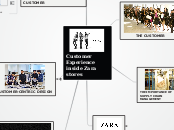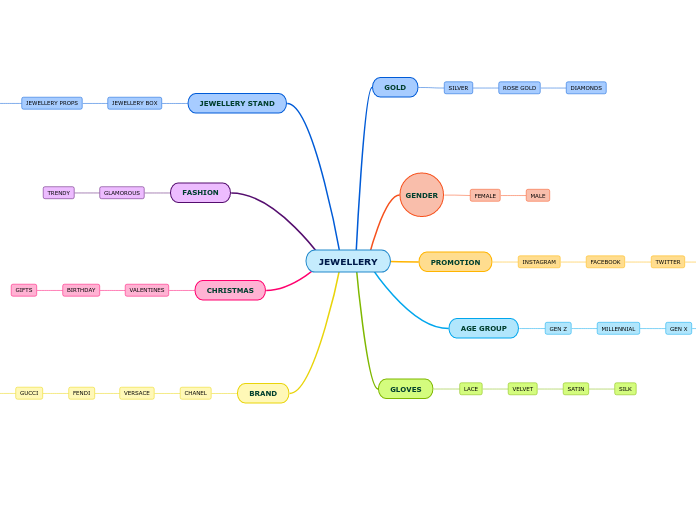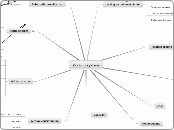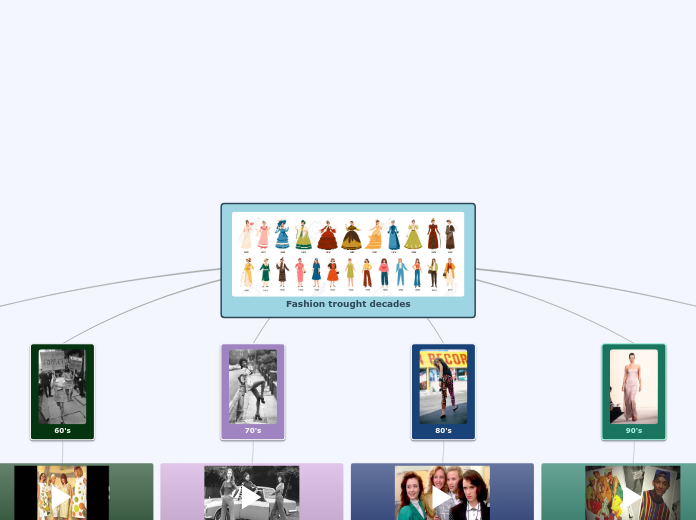Customer Experience inside Zara stores
INTRODUCTION
Customer Experience Management
Name: María Inés Vaccari
Hi! I'm María Inés Vaccari from Lima-Perú and I'm doing this mind map for the Customer Experience Management elective at IE Business School.
Zara is a Spanish clothing and accessories retailer based in Arteixo, Galicia. The company was founded in 1975 by Amancio Ortega and Rosalía Mera. It is the main brand of the Inditex group the world's largest apparel retailer.
I chose Zara because it's a company that revolves around the customer. From the design department to the supply chain is designed so that the customer is the most satisfied.
CUSTOMER-CENTRIC DESIGN
Amancio Ortega, founder and former chairman of Inditex, is a defensor of the customer-centric products. So, he wanted to give customers the products they want in that moment.
Unlike traditional specialty retailers that have design teams creating products they believe are going to be trending 12 months out, Zara have buying teams sourcing current trending fashion from streets, catwalks, feedback from sales assistants and also Zara also has an internal data center that helps it track what customers want and don't want. So they create the products and in two weeks they have them available in stores.
Sales and design department
The commercial and design teams are vast – covering a large proportion of the 1.7m sq ft of offices at Inditex HQ. The result of this structure is that the product range in Zara stores evolves rapidly. Rather than relying on one product range per season, the retailer will enjoy four or five waves of new products after the initial seasonal launch.
The relationship between sales and design is crucial. Sales know what is selling in stores through data and also they identify trends – either from evidence in stores or the catwalk – so then they work with the designers to develop new products to meet the trends.
Every product designed has to be approved by the sales team.
Design department
THE IMPORTANCE OF THE STORE AS THE POINT OF CONTACT WITH THE CUSTOMER
Precise product coordination and customer feedback
Zara has equipped all the store managers with handheld PDA devices that are linked to the store’s POS system and show how garments rank by sales and availability in stores.
The PDAs are also used to gather clients input as staff regularly chats with customers to gain feedback on what they’d like to see more.
Also for the ordering by each store, both for replenishment items as well as new products.
Privileged Locations
Location is a key success factor in order to get the maximum traffic of prospects and customers. For Zara, this is even more critical as the store is the only way where Zara is connecting with customers. It’s a brand strategy to don’t do advertising, they spread only by word-of-mouth. So customers have to enter the store to see them. It’s a pull strategy, not push.
Interior Arquitecture
All the store windows are designed centrally in the HQ. Zara has a full team of window front designers who constantly travel around to understand the culture and customers of each store. The mannequins change every day to give the impression to the customers that something has changed inside and may lure them to enter.
CONCLUSIONS
Amancio Ortega has designed the whole company processes based on customer satisfaction.
The key success factor of Zara is that they changed the way retailers where doing things. Instead of being product-centric -designing and creating collections for 12 months from now- they give the customer what they want in that moment.
In the last four years, Inditex has invested more than 1,000 million euros in technology and innovation. It's important how they always challenge themselves to improve the efficiency of their processes and customer satisfaction by identifying the touching points with the customer and making them easier.
THE IMPORTANCE OF SUPPLY CHAIN MANAGEMENT
According to the organization itself, Inditex departs in the opposite direction from most companies. The customer is the first in its scale, then there are stores that will collect all the information previously commented, then we find the design, manufacture and distribution.
The manufacturing deadlines for an Inditex garment can reach three or four weeks if everything goes well and have it in store in just 24 hours if we talk about Europe or 48 hours if we go to the rest of the world. A speed that is only achieved by an efficient logistics center and effective communications.
RFID system
THE CUSTOMER
Current trendy fashion lovers that want instant fashion, with high quality and low prices
Zara generates a "sense of urgency". Customers know they have to buy in that moment because clothes won't last in stores.
Twice a week new style in stores!









